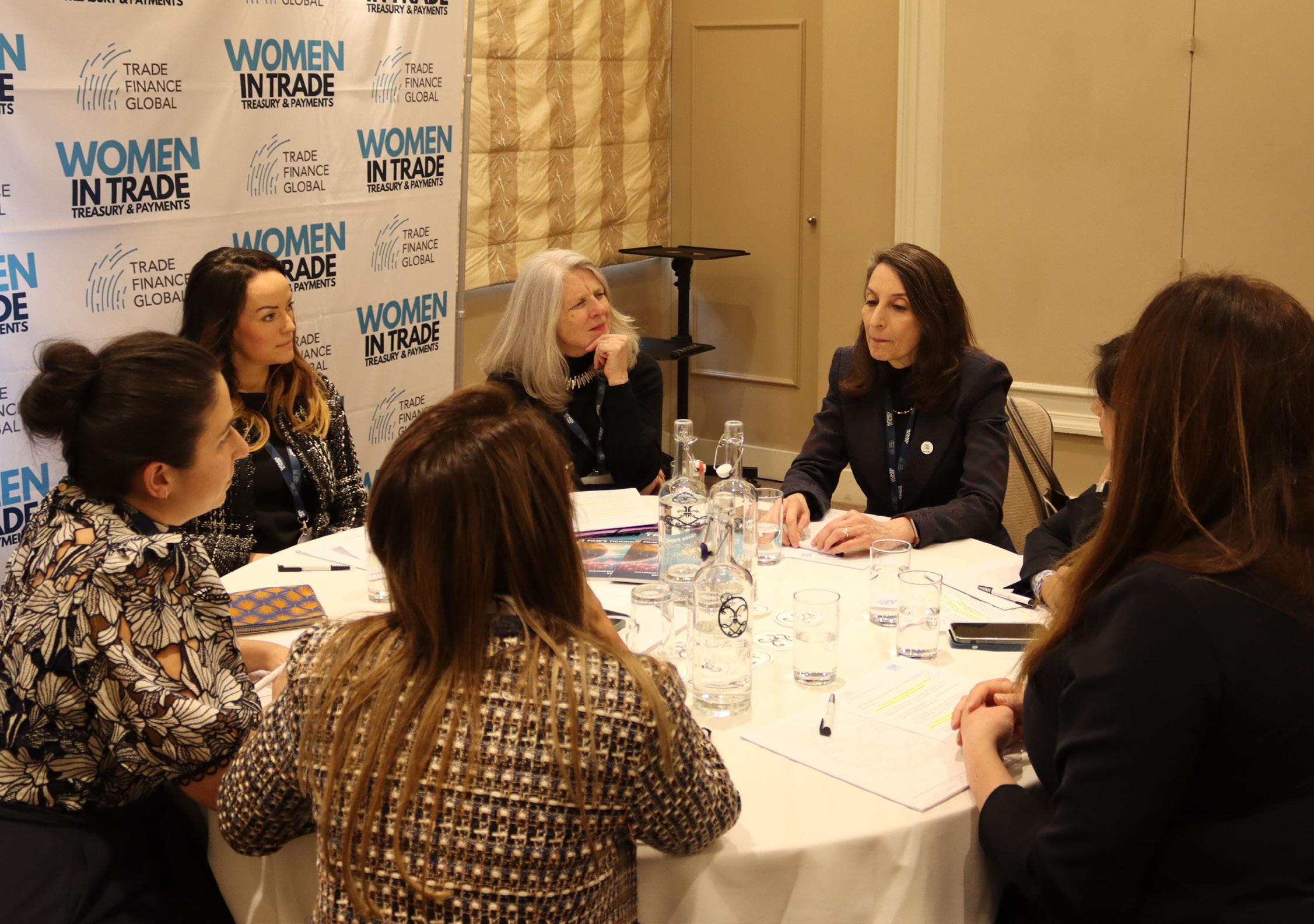
4 minute read
3.9 Natalia Clements on challenges in the workplace and equitable company policies
However, ensuring equity in the workplace goes beyond flexible working hours. This very commitment must be engrained in the culture of the company.
Trade Finance Global is happy to be championing International Women’s Day for the fourth straight year.
While it is important to work towards gender parity and equal opportunities year-round, we want to take today to highlight some of the women leaders in Trade, Treasury and Payments.
The theme for International Women’s Day 2023 is ‘Embracing Equity’. What is the difference between equity and equality?
Equality means each individual or group of people is given the same resources or opportunities.
Equity recognises that each person has different circumstances, and allocates the exact resources and opportunities needed to reach an equal outcome.
Understanding and implementing equitable actions requires a holistic approach from companies and individuals.
To better understand the larger picture of ‘Embracing Equity’, TFG’s Brian Canup spoke to Natalia Clements, senior trade finance specialist at Swiss Re Corporate Solutions, who shares her experiences as a woman in the insurance industry, the challenges she has faced, and the importance of embracing equity in the workplace.
Changing challenges and embracing versatility

Confidence is key. But some women struggle to feel like they fit in at the start of their careers.
Natalia recalls, “The challenges that I have faced have certainly evolved over time…when I first started out in my legal career, it was really a lack of confidence.
Because I was a woman, I think I naturally just took up less space. I was a bit quieter, I lacked confidence. I almost felt like I had a kind of imposter syndrome. Was I good enough to be in this international law firm?”
The feeling that Natalia had is not a unique experience, a KPMG study showed that 75% of women in executive positions have experience imposter syndrome at some point during their careers.
But as Natalia gained experience and confidence, a new challenge arose in her life. “Not everybody fits into static boxes. And over the course of their experience, life will change, and events will occur.”
The biggest challenge she ultimately faced was becoming a mother. Like many women, she became the primary caregiver for her children, which required a significant shift in how she worked.
To promote equity within the workplace, Natalia says that companies need to be more flexible and provide more support for working parents. This could include offering flexible working hours, remote work options, and support for childcare.

So far at Swiss Re Corporate Solutions, Natalia has had an overwhelmingly positive experience, as she has been hired into a senior role working flexibly at 60% across four days a week, and Swiss Re Corporate Solutions continues to “adapt and help facilitate a working environment that actually allows someone like me to continue to contribute to this industry.”
However, ensuring equity in the workplace goes beyond flexible working hours. This very commitment must be engrained in the culture of the company. Natalia sees this at her company, and says that Swiss Re Corporate Solutions is “strongly committed to diverse candidate selection and a diverse panel and recruitment process, and support this through various initiatives such as female mentoring programs… and Swiss Re is committed to ensuring equal pay for equal work.”
But as life changes, companies need to evolve as well. While one policy might work for one year, it may not be effective in the next year.
“Companies need to be really careful to monitor their working policies.”
How can men support women in the workplace?
Empowering women in the workplace is an effort that needs to be tackled by everyone in a company, men included. Natalia said, “How men fit into the equation is actually really important because they’re very much a part of driving the culture within a company.”
If leaders can create an environment where employees feel a sense of belonging, it will show in the company’s diversity, equity, and inclusion. It’s deep within the culture of a company, and you can sense it at the very first stages of interaction with the company.
At Swiss Re Corporate Solutions, Natalia felt this commitment immediately as she interviewed for her position. The male executives listened and adapted the role based on Natalia’s needs for a flexible work environment.
In terms of whether men should play active roles in the fight for gender parity, or sit back and listen, Natalia believes that it’s a balancing act. Men need to step up as allies and recognise that all individuals face different challenges at different times. To create equity, senior male leaders need to observe the challenges that women are facing and identify areas where it’s possible to level the playing field.

But there is nuance to this idea, as Natalia believes that men shouldn’t just “jump in and simply make changes before women are given a chance to stand up and try to push for change themselves and make change happen themselves.”
It’s important for men and women to work together to achieve gender equality in the workplace, as it’s critical to attracting and retaining female talent and expertise.
Equitable growth requires collective action
Ultimately, having an inclusive environment is crucial for creating a strong company culture. Men play an important role in driving this culture, especially as part of the senior leadership team.
Natalia sees this as a collective problem, stating: “I think actually, if men and women work together… there will be change. And ultimately, achieving gender equality in the workplace has significant benefits for everyone.”
Companies that prioritise diversity, equity, and inclusion will ultimately have stronger performances and better decision-making, leading to more optimal business outcomes.
Once the world understands that the problems women face in the workplace are problems for all of us, we can move the needle and truly Embrace Equity.












